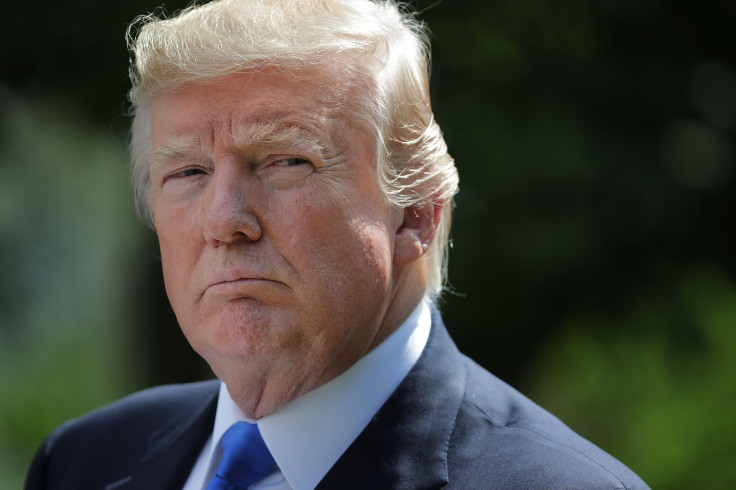Could A Trump Trade War Affect The Budding Marijuana Industry?

This will probably go down as another record-breaking year for the marijuana industry.
The big victory, as you might imagine, was the passage of the Cannabis Act by Parliament in Canada on June 19. In just under two months, recreational marijuana will officially go on sale in our neighbor to the north, making it the first industrialized country in the world to accomplish this feat. When legalized, and the industry is fully operational, it could generate up to $5 billion in added annual sales.
This article originally appeared in The Motley Fool.
But this banner year hasn't been limited to Canada. In January, Vermont became the ninth state to OK recreational cannabis use, and the first to do so entirely through the legislative process. Meanwhile, residents in the strongly Republican-leaning state of Oklahoma recently approved a medical marijuana measure, making it the 30th state to have passed broad medical cannabis laws.
No matter where you look throughout North America, the cannabis industry is budding. But that could soon change, thanks to Donald Trump's tariff war with China.
Yes, A Trump-Led Trade War Could Affect The U.S. Pot Industry
During his campaign, and since taking office, President Trump hasn't held back about the role China has played in limiting the potential of the U.S. economy. Trump has opined that China's economic advantages (e.g., low labor costs), and its exorbitant trade surplus with the U.S., has put the United States at a distinct disadvantage. In an effort to level the playing field, Trump initially levied tariffs on $34 billion worth of Chinese goods in early July. The idea behind the tariffs is that it makes foreign goods more expensive, steering consumers toward buy domestic-made products instead.
But using tariffs to minimize a long-running trade deficit with China is really just a game of escalation. China quickly retaliated with tariffs on $34 billion worth of U.S. goods, and the two sides have been outlining the next products to be hit with tariffs ever since.
The issue with tariffs is that these higher costs (an up to 25% tax rate on select goods) have to go somewhere. Businesses could choose to eat that added cost and reduce their margins, ultimately hurting investors. Or, as is the more likely scenario, businesses can choose to increase the prices for goods and services impacted by tariffs. Ultimately, that means more money out of the pockets of consumers.
When it comes to the U.S. marijuana industry, the greatest impact could be felt by the ancillary cannabis industry that operates behind the scenes. The announced tariffs on imported Chinese goods already includes vaporizers, batteries used in vaping devices, and pre-filled pods used by vaping devices. Online publication Marijuana Business Daily also suggests that future tariffs could impact companies that import packaging materials from China.
Furthermore, tariffs may very well affect pot business that come in direct contact with the cannabis plant. Growers could see their expenses rise if lighting equipment purchased from China is hit with tariffs, or if they decide to purchase extraction equipment, used to make cannabis concentrates, made with Chinese aluminum or steel.
Three Pot Stocks That Could Be Stung By Tariffs
Long story short, this looks like a recipe for higher costs in the cannabis industry, which would mean a decision from growers and ancillary businesses alike as to whether to eat these higher costs, or to pass them along to consumers.
Panning the industry, there are three pure- and partial-play marijuana stocks that could be adversely affected by Trump's push for tariffs.
First, lawn and garden giant Scotts Miracle-Gro (NYSE:SMG) may feel a pinch. Though 89% of Scotts' total sales were derived from its traditional lawn and garden product segment last year, the remaining 11% came from its Hawthorne Gardening subsidiary, which is primarily focused on the medical marijuana industry. More specifically, Hawthorne supplies hydroponic and lighting solutions.
The thing is, Scotts Miracle-Gro ponied up $450 million recently to acquire Vancouver, Wash.-based Sunlight Supply. According to The Columbian, Sunlight Supply used to make a lot of its lighting products in-house but has since turned to China for much of its production. The company simply rebrands these lighting products under the Sunlight Supply name once in the States. Assuming tariffs do hit these lighting products, its Scotts Miracle-Gro, or its medical marijuana customers, that could feel the pain.
Along those same lines, LED producer Cree (NASDAQ:CREE) could see its business adversely affected as a result of tariffs. Unlike Scotts, which breaks out what percentage of its business is derived from cannabis, investors don't get that luxury from Cree. However, we do know that Cree's LED production factory in China, which sends product to the U.S., is in line to be affected by tariffs. And while high-pressure sodium lights are still the preferred lighting used when growing marijuana indoors, LED lights are expected to grow in popularity. In short, there's a strong likelihood of a modest, but nonetheless negative, impact here.
Among pure-play marijuana stocks, it's Santa Ana, Calif.-based Kush Bottles (NASDAQOTH:KSHB) that I'd worry about. Kush, which makes packaging and branding materials for the marijuana industry, purchases some of its packaging products from China. These products are advertised as part of its "Value Line," and they're used in markets where packaging regulations aren't as strict, such as in California. This line of packaging products could get more expensive, which would mean a good chance that Kush passes these costs down the line to consumers. However, doing so could irritate its clients and ultimately hurt its business.
It's far too early to know for sure what the full impact of the Trump-led trade war could be on the U.S. marijuana industry, but an initial pass suggests it won't be good for business.
Sean Williams has no position in any of the stocks mentioned. The Motley Fool has no position in any of the stocks mentioned. The Motley Fool has a disclosure policy.





















